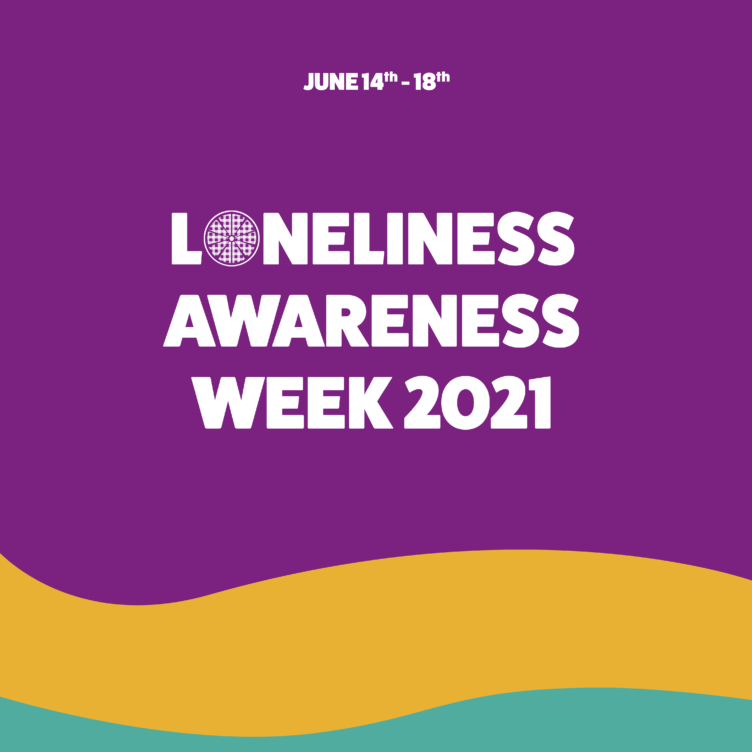The 14th-18th of June was Marmalade Trust’s loneliness awareness week, and following up on it, we wanted to touch on the importance that physical and mental wellbeing has for our overall health. With the Coronavirus pandemic and the effects that it’s had on all of us, prioritising looking after ourselves and our mental wellbeing is – now even more than usual – of vital importance.

June 14th-18th was Loneliness Awareness Week
What is loneliness?
We all feel lonely at times – it’s a normal human emotion. We’re biologically wired for social contact and loneliness is our signal that we need more.
The definition: Loneliness is a perceived mismatch between the quality or quantity of social connections that a person has and what they would like to have [1].
Why it matters?
Working on a week to week basis with our young people and community members, we know the importance of being in a good headspace and the effect that being in a bad one can have. Not being in a good place mentally can mean you end up in a bad mood, low on energy, demotivated and/or struggling to focus when you need to do so. It can affect your day-to-day, as well as your relationships with friends, loved ones and those around you.
For tips on how to improve your mental wellbeing, check out Mind’s Mental Wellbeing guide.
mind’s Wellbeing Guide
We’ve highlighted what we think are some of the most important parts from the guide; below you’ll find 5 key areas to focus on to improve your mental wellbeing [2]:
1. Relax and reduce stress

We should always spare some time in our day to relax; the human mind needs moments to switch off and process information.
Find ways to relax
If there’s something that helps you relax, try to find time to fit it into your day. For example, this could be having a bath or going for a walk.
Take a break if you need to
If you’re feeling overwhelmed by a stressful situation, try to take a break. A change of scene can help you to relax and relieve feelings of anxiety, even just for a few minutes.
“For me, whenever I feel overwhelmed or like I’m being mentally negative, I put my headphones on and go for a walk. This helps me zone out and ensures I don’t do anything I will later regret.“
Do something you enjoy
Try to make time to do an activity you like on a regular basis. This could be something small, like cooking a meal, ringing a friend or listening to music.
“I find listening to radio or audiobooks very helpful to distract from low mood or sadness.”
Try to manage stress
If you’re under a lot of pressure, you may start to feel overwhelmed or out of control. Stress can also cause physical side effects.
“I find it useful to write down what I need to do and then number them in order of priority. This helps me to manage what I’m doing and I feel in more control.”
Try mindfulness
Mindfulness is a way of paying attention to the present moment, using techniques like meditation, breathing exercises and yoga. It’s been shown to help people become more aware of their thoughts and feelings. This means that instead of being overwhelmed by your feelings, it becomes easier to manage them.
“I had to make room to be well. Sounds daft but give yourself some space–in my case I used mindfulness to help me gain control.”
Give yourself some tech–free time
If you find that being on your phone or computer a lot is making you feel busier and stressed, try to take a break. This could be for just an hour or two. If you find this difficult, try putting your phone in another room or setting an alarm to time yourself.
2. Find ways to learn and be creativE

Creativity is a great outlet to reduce stress.
Try doing something creative
Doing something creative can help distract you from difficult thoughts or feelings, or help you to process them. It can also be rewarding. You could try doing something like drawing, playing a musical instrument or baking. Try not to worry about the finished product. Just focus on enjoying yourself.
Join a class or group
Learning a new skill in a group can be enjoyable, and help boost your confidence. To find out what’s on in your area search the National Alliance of Arts in Health and Wellbeing directory, or ask at your local library or community centre.
Try online learning
Online learning is a good option if it’s difficult to get out and about or you’re short on time. See the Future Learn and Open Learn websites to find free online courses.
“I find that any sort of craft activity really focuses my mind and stops me from concentrating on negative thoughts. It can also be quite rewarding to actually produce something.”
3. Spend time in nature

Spending time outdoors can help us reconnect with the present moment by being more in touch with the world around us.
Try to spend some time outdoors
Spending time in nature outdoors can help improve your mood and reduce feelings of stress and anger.
“When I was feeling really low recently I went for a walk in a nearby park. The flowers and blossom were beautiful. Enjoying those and listening to the birds singing really helped lift my mood.”
Bring nature indoors
This can give you the benefits of nature without having to go to a park or public garden. You could buy flowers, potted plants or seeds for growing on your window sill. Or you could collect natural materials from outdoors, such as leaves, flowers, feathers, and use them to decorate your living space.
Spend time with animals
Lots of people find that being with animals is calming and enjoyable. You could try pet–sitting or dog walking, feed birds from your window, or visit a local community farm.
“Spending time with an animal… is one of the best things you can do to understand and learn about what wellbeing and happiness really are.”
Try a mindfulness exercise in nature
Pay attention to your surroundings and find things to see, hear, taste, smell and touch.
“I have several physical health challenges as well as mental health… so I’ve had to be creative in what I do for my wellbeing. I’m part of a community gardening group… I can pot up plants and help make nutritious meals.”.
4. Connect with others

Connecting with others can help us have a greater sense of belonging and reduce feelings of loneliness.
Talk to someone you trust
Opening up to a trusted friend or family member can help you feel listened to and supported. Sometimes, just acknowledging your feelings by saying them out loud can also help.
Try peer support
If you’re finding things hard, talking to people who have similar feelings or experiences can help.
Volunteer
Using your time to help others can give you a sense of purpose, help you meet people and boost your self–esteem. See the Do It website for volunteering opportunities.
5. Look after your physical health

Regular exercise has been shown to release endorphins which boost our mood and increase our energy levels.
Drink water regularly
Drinking enough water is important for your mental and physical health. The NHS has more information about hydration and your health.
Think about your diet
Try to eat regular meals and have a balanced diet as this can help your mood and energy levels.
Look after yourself
Basic self–care, like brushing your teeth or having a shower is important for your physical health and can help you feel better. If you’re struggling, try to set yourself small goals, like getting up and washing your face.
Try to avoid drugs and alcohol
You might feel like using drugs or alcohol to cope with any difficult feelings. But in the long run, they can make you feel worse.
Try to keep active
Try to build physical activity into your daily routine, if possible. It doesn’t have to be anything big, like running a marathon. If you aren’t used to being active, start off small and try to find something you enjoy.
“I aim to go for a walk at lunchtime during the working week. It gives me time to clear my head from the morning which helps prepare me for the afternoon stint. It also reminds me that Monday–Friday isn’t all about work. I need to also look after myself.”
Try to get enough sleep
Try and establish a routine around bedtime to help set and maintain a regular sleeping pattern.
Avoid screens
Give yourself some tech–free time before sleep and avoid bright screens that can affect your sleep.
Try to wind down before bed
Do a relaxing activity, like having a bath, or try a relaxation exercise before you go to sleep. It may also help to avoid having caffeine before your bedtime as this can keep you awake.
Try to make your sleeping environment comfortable
A comfortable sleeping environment can help improve your sleep. Small changes can help. For example, you might sleep better with a low light on, or with different bedding. If you’re staying away from your normal bed, having your own items can help make things feel more comfortable and personal. For example, you could use your own pillow or blanket. If you’re living in a hostel or supported accommodation, the Groundswell website has some ideas for improving your sleep.
“I also read if I can’t sleep… as well as drinking herbal tea, it helps me relax and fall asleep faster. If this doesn’t help, I focus on my breathing and try and empty my brain.”
how we can help
If you’re struggling with your mental wellbeing you can reach out to our youth or community workers at any of our sessions who can help you to find support. If you’re not comfortable speaking to one of our staff, or would like to get help directly – you can visit:
-
The Mind website – www.mind.org.uk
-
Young Minds – https://youngminds.org.uk/
-
Samaritans – samaritans.org
If you’re in need of urgent help you can call the Samaritan’s 24-hour helpline:
116 123 (freephone)
References:
-
Perlman, Daniel, and L. Anne Peplau. “Toward a social psychology of loneliness.” Personal relationships 3 (1981): 31-56.
-
©Mind 2021

